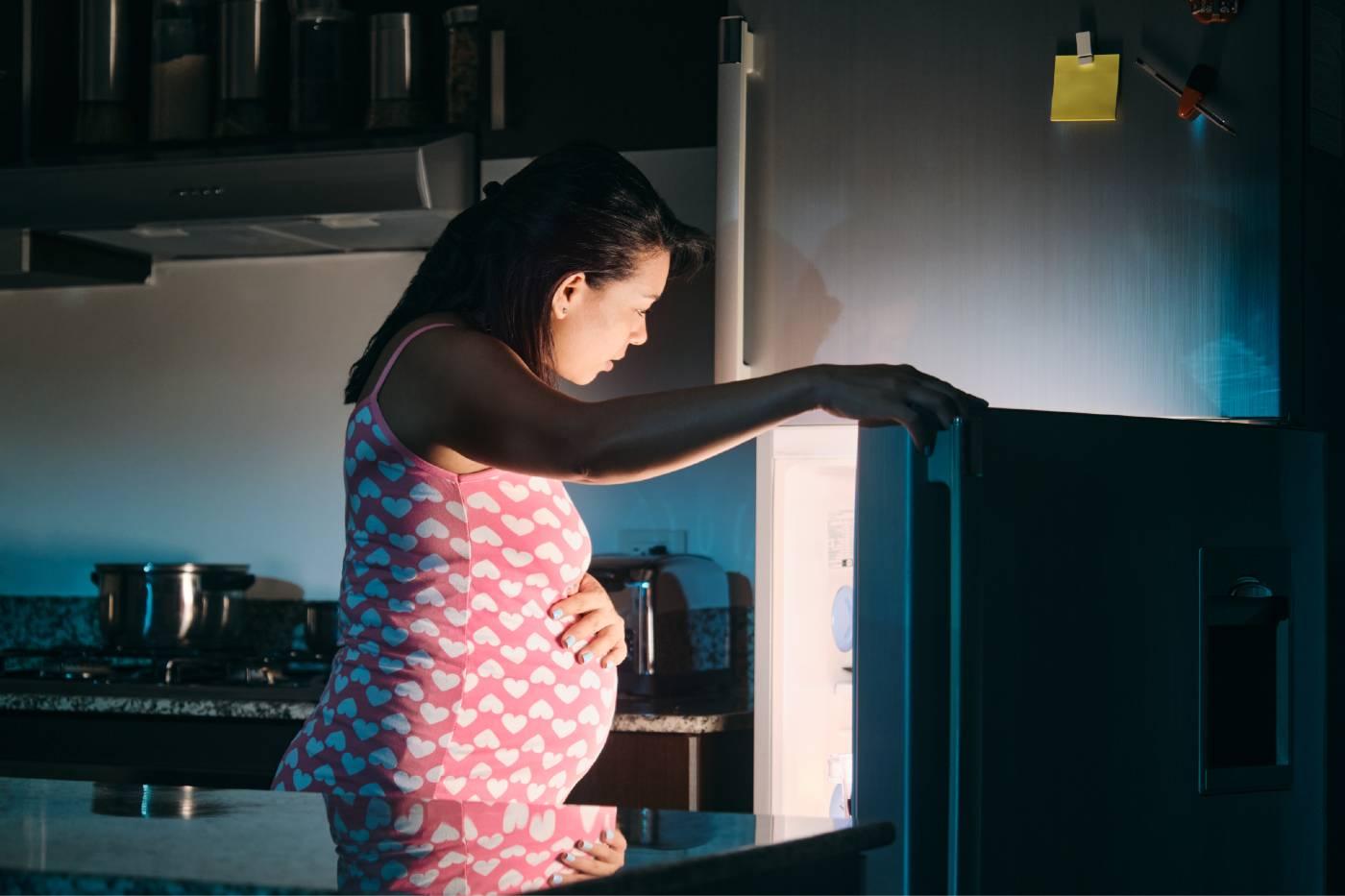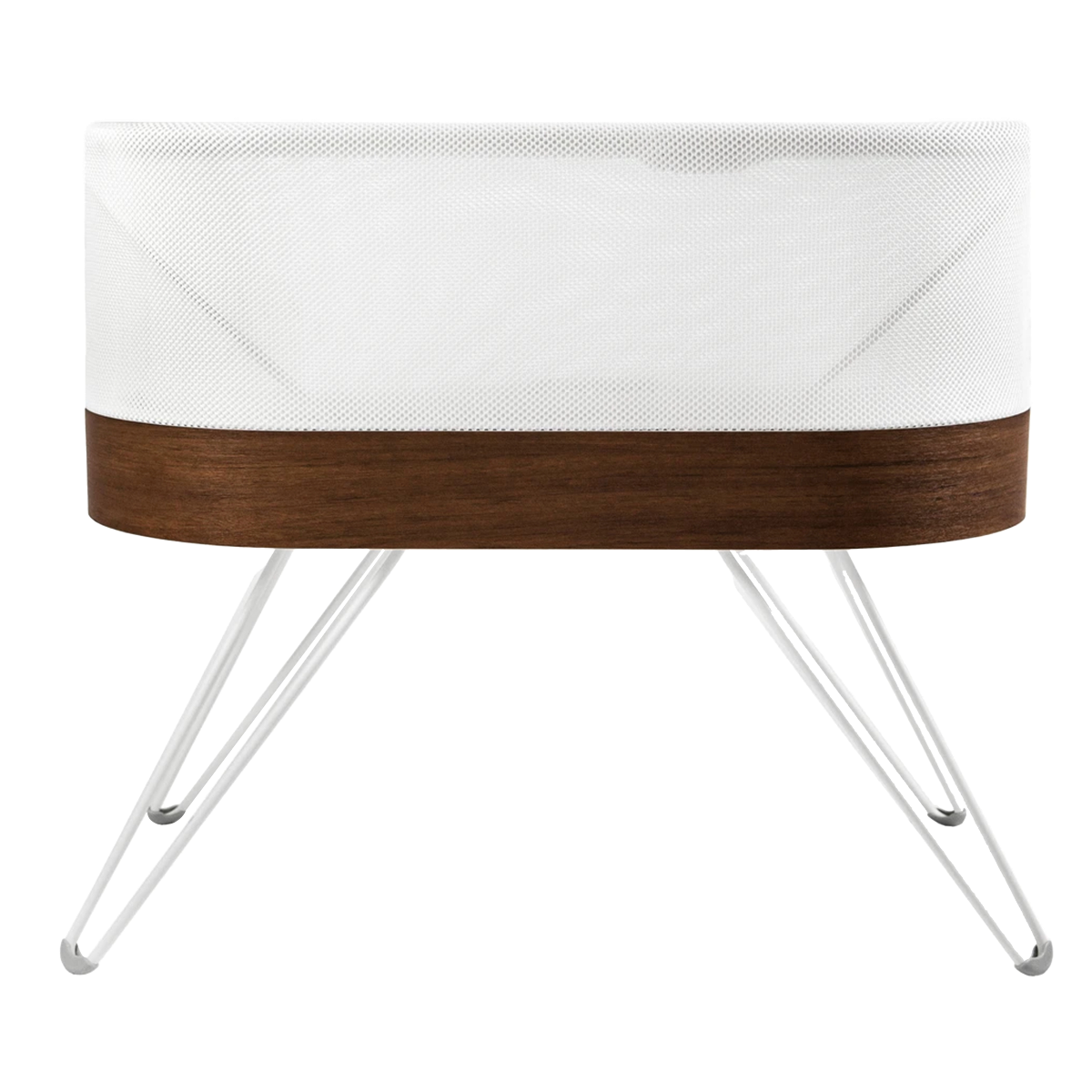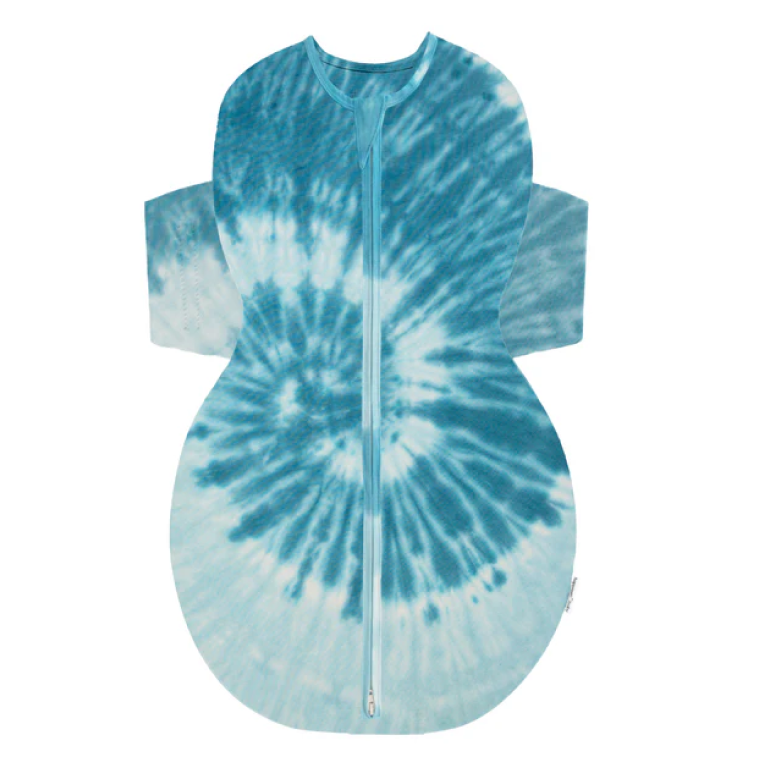PREGNANCY
What to Eat When You’re Expecting Twins and Multiples
Eating for two is tricky enough, never mind eating for three—or more! Here’s all the advice you need.

Written by
Happiest Baby Staff

We’ve all heard the pregnancy nutrition advice of take your prenatal vitamins, increase your calories, and load up on good-for-you fresh and whole foods…but what exactly are you supposed to do when you’re carrying more than one baby? Does “eating for two” morph into “eating for three” when you’re expecting twins? Does pregnancy nutrition advice even change from singletons to multiples? So many questions! And the answers, well, aren’t always super clear. If you’re pregnant with multiples and wondering what to eat while expecting, keep reading: We’ve dug through the research to give you the best advice on pregnancy nutrition for twins or multiples.
Are there nutritional guidelines for twin pregnancies?
Even though the American Academy of Pediatrics (AAP) attests that proper nutrition is “the most important step” to care for twin pregnancies, there are actually no specific nutritional guidelines for those expecting multiples. Perhaps even worse: Up to 37% of those expecting multiples didn’t recall receiving any nutrition advice from their healthcare provider, according to a 2019 report in BMC Pregnancy and Childbirth. And those who did get what-to-eat-advice were most often told to simply eat a well-balanced or healthy diet. Not ideal!
Do you need more calories when pregnant with twins?
Yes! Calories are super-important for helping you—and your little ones—gain a healthy amount of weight during pregnancy. While the exact amount of extra calories needed when carrying twins or multiples is not set in stone, the American College of Obstetricians and Gynecologists (ACOG) recommends taking in an extra 300 calories a day for each baby you’re carrying. That means, if you’re pregnant with twins, you need an extra 600 calories a day. Other experts suggest that you bump up your calorie intake even more in the second trimester (340 calories per baby) and then again in your third trimester (452 calories per baby). Is this news to you? You’re not alone. Only 30% of folks expecting twins surveyed received caloric intake recommendations from their provider—and when they did, the advice ranged from adding 300 to 1,500 calories a day.
Do I need more prenatal vitamins with twins?
No! Only take one serving of your prenatal supplement each day, according to both ACOG and the AAP. Taking too many prenatal vitamins can be dangerous. For example, some multivitamin ingredients, such as vitamin A, can cause birth defects at higher doses. If your healthcare provider thinks you need more of a certain vitamin or mineral, like folic acid or iron, they’ll recommend them as separate supplements.
Do I need extra iron and folic acid supplements when carrying multiples?
Probably. While iron is included with most prenatal vitamins, extra supplements may be needed to hit your 30-milligram a day mark during the first trimester and 60-milligrams a day during your second and third trimesters. (The extra iron helps to prevent anemia, which is up to four times more common in twin pregnancies than in singleton pregnancies.) Also, if you’re carrying multiples, you should clock 1 milligram of folic acid a day to help prevent birth defects of the brain, spine, and spinal cord, but most prenatals have only 0.4 to 0.8 milligrams, which means your healthcare provider should walk you through your options. Don’t just start taking extra without the guidance of your midwife or doctor! At the same time, don’t sit back and wait for your provider to suggest supplementation for your twin pregnancy. Research shows that only 8% of women expecting multiples recalled their doc or midwife offering advice on micronutrients, like iron and folate. (PS: At times, extra calcium, magnesium, and zinc supplements are also needed for twin pregnancies and multiple pregnancies, so be sure to inquire about that, as well.)
How much water do you need when expecting twins?
Whether you are expecting one bouncing baby or several, it’s important to drink 8 to 10 large glasses of water daily, totaling 64 to 80 ounces. Your babies’ extra blood flow depends on it! Plus, staying hydrated helps to prevent urinary tract infections, which are about three times more common in those carrying multiples. To help ward off middle-of-the-night bathroom visits due to all that water-drinking, the AAP recommends taking in more water earlier in the day and then stopping after 8pm.
How much protein should I have when pregnant with twins?
Protein is crucial for your babies’ growth! Research indicates that not consuming enough protein means too few amino acids, which may adversely affect the development of not only the placenta, but your babies, too. In fact, “eat more protein” is the most consistent nutrition recommendation made by healthcare providers to patients carrying multiples. While some experts recommend shooting for between 9 to 12 ounces of protein a day when you’re carrying multiples, others aim lower, landing at around 7 ounces a day. Check with your healthcare provider for their advice, and follow these tips:
-
Include a healthy protein source, like dairy, eggs, poultry, fish, and plant-based proteins, such as tofu and beans, in each meal and each snack. - Even when you’re indulging in a craving, consider adding protein to it. For example, crushed nuts are amazing on ice cream!
- Shoehorn protein into smoothies by adding in oats, silken tofu, crushed nuts, or cottage cheese. (Learn more RD-approved pregnancy smoothie ideas.)
- Have two to three servings of pregnancy-safe fish, like salmon, cod, trout, or mahi-mahi a week, which shakes out to roughly 8 to 12 ounces in total. (Learn more about eating fish while pregnant.)
- Limit white (albacore) tuna to only 6 ounces a week. Also check advisories about fish caught in local waters.
Morning Sickness, Multiples, and Eating Enough
When you’re expecting twins or multiples, you’re far more likely to suffer from nausea and vomiting—and early satiety, which means feeling very full after eating a small amount—than those carrying one baby. These factors can make it tricky for you to adhere to the ramped-up nutrition requirements in a twin or multiple pregnancy. In fact, some of those expecting twins or multiples actually lose 5 to 10 pounds in their first trimester! If this is you, try not to worry. If you gain enough weight later on, you should be A-okay. For help getting the nutrients you need despite morning sickness…
-
Eat small healthy snacks frequently. Always having a little something in your tummy can help quell the nausea. - Try these The AAP recommends putting easy-on-the-tummy snack options like crackers, low-fat yogurt, fruit, smoothies, and protein shakes in your frequent-snack rotation.
- Stay hydrated. Sick of plain water? Try drinking ginger tea or adding lemon juice to your cold water. High-water fruits and veggies, like melon, celery, and cucumbers are also super-hydrating.
- Include protein at every meal. Eating protein-rich foods can help stave off nausea and increase your energy, according to research.
- Steer clear of fatty foods. High-fat, greasy foods, like bacon, pizza, fried chicken, and French fries are hard to digest and can trigger morning sickness symptoms.
More on Eating Healthy During Pregnancy:
- The Nutrients You Need When Pregnant, According to a Registered Dietitian
- Healthy Foods to Satisfy All Your Pregnancy Cravings
- Must-Have Nutrients for Vegetarian Pregnancies
- Foods to Avoid in Pregnancy
- Non-Alcoholic Drinks for Pregnancy
- Caffeine During Pregnancy: Yes or No?
***
REFERENCES
- American Academy of Pediatrics (AAP): Having Twins? How to Stay Healthy
- Provider advice on physical activity and nutrition in twin pregnancies: a cross-sectional electronic survey. BMC Pregnancy and Childbirth. November 2019
- American College of Obstetricians and Gynecologists (ACOG): Multiple Pregnancy
- Brigham and Women’s Hospital: Meeting Your Nutritional Goals During a Twin Pregnancy
- ACOG: Nutrition During Pregnancy
- Review of Dietary Recommendations for Twin Pregnancy: Does Nutrition Science Keep Up with the Growing Incidence of Multiple Gestations? March 2022
- Brigham and Women’s Hospital: FAQs About Pregnancy with Twins, Triplets and More
- Acute Infectious Morbidity in Multiple Gestation. Infectious Diseases in Obstetrics and Gynecology. January 2015
- University of Washington Medical Center: When You Are Expecting Multiples
- Texas Health Resources: Pregnancy Nutrition: What To Eat When Carrying Twins
- University of Miami Health System: Early Satiety
- Nausea and Vomiting of Pregnancy. Gastroenterology Clinics of North America. June 2013
Disclaimer: The information on our site is NOT medical advice for any specific person or condition. It is only meant as general information. If you have any medical questions and concerns about your child or yourself, please contact your health provider.
SHARE THIS ARTICLE
MOST LOVED
Sleepytime Sidekicks












